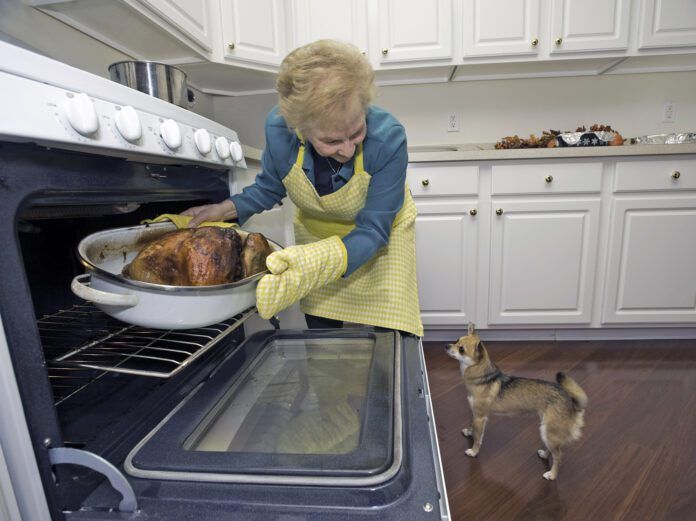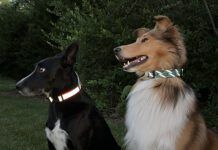If you’re planning to share turkey with your dog, consider the way the turkey has been prepared. Avoid table scraps that have been cooked with additional ingredients and deli meat that is full of salt. If you choose to give your dog a taste of Thanksgiving turkey, make it a small bite. (Be careful with the entire Thanksgiving meal, of course, as it could contain some ingredients that are not healthy for your dog.)
Your dog can eat turkey that has been fully baked without additional seasonings. Some ingredients in traditional Thanksgiving baked turkeys may cause gastrointestinal upset like vomiting and diarrhea, or could be toxic to your dog (onions!). When it’s cooked blandly without additional ingredients and fed appropriately most dogs can eat turkey. Many dogs will consider turkey a high-value treat for training.
Dogs Who Should Avoid Turkey
If your dog has any chronic illnesses or problems, ask your veterinarian if your dog can eat turkey. Your veterinarian may advise against it if your dog has a history of:
- Pancreatitis
- Gastroenteritis
- Irritable bowel syndrome
- Allergies
- Sensitive stomach
How to Feed Home-Baked Turkey
For sure, certain parts of the traditional turkey should be avoided, including:
- Bones
- Seasonings
- Skin of turkey
- Fats or broth
- Salt
Normally Dogs Eat Turkey in Their Dog-Food
Whole turkey is only safe for your dog when consumed without any extra ingredients and as a snack, training treat, or meal topper only. Whole turkey alone though is not a balanced diet. Remember that quality dog food has been properly formulated with additional ingredients to match the American Association of Feed Control Officials (AAFCO) recommended levels of nutrients that ensure your dog is eating a healthy, balanced diet. You can find Whole Dog Journal recommended dry foods and recommended canned foods, many of which include turkey as a protein source.





